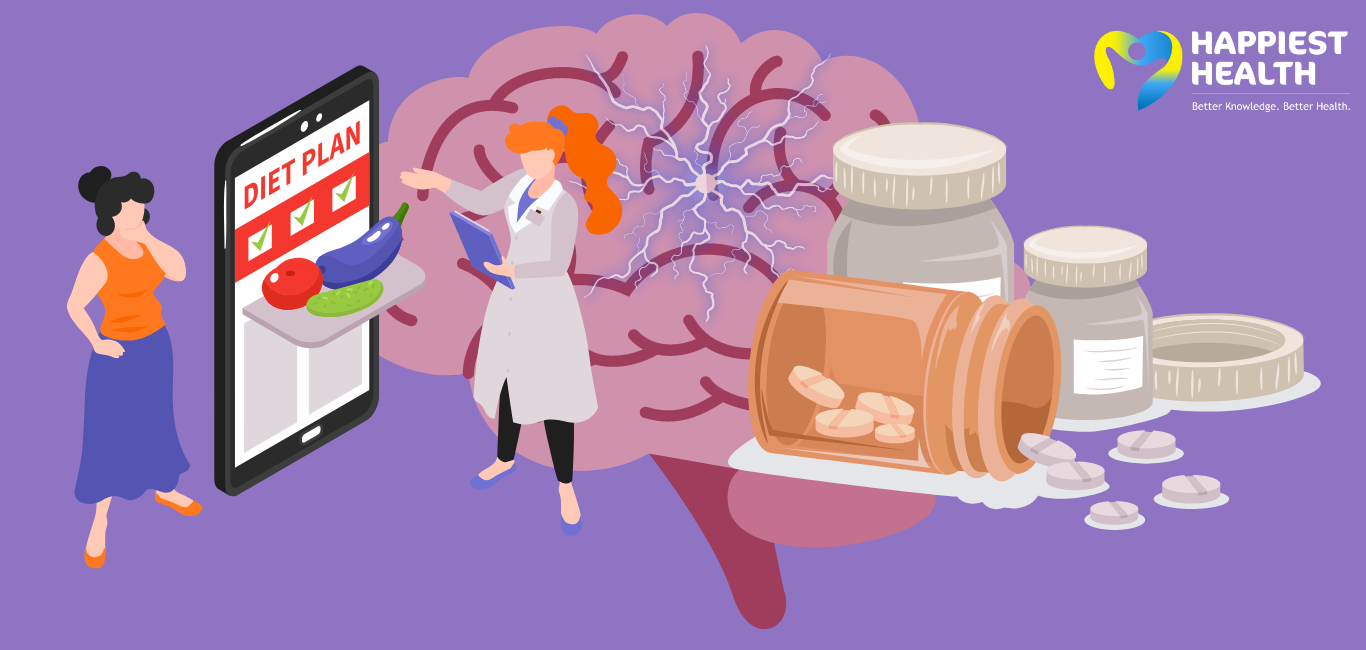
Nerve cells within our brain communicate with each other through electro-chemicals messages. Sometimes a sudden burst of uncontrolled electric activities in these brain cells causes seizures. Epilepsy is a long-term chronic condition of the brain wherein a person experiences frequent seizures. Its typical physical symptoms are jerking limbs, changes in awareness, loss of muscle control, and changes in sensation, emotion, and behaviour.
“Although currently there is no known solution for the reversal of the condition, timely diagnosis, regular medication, and proper care can help to manage epilepsy,” says Dr Nishchit Hegde, a neurosurgeon at M S Ramaiah Memorial Hospital, Bengaluru. Dr Santhosh C, specialist consultant (neuropsychiatry) at SRIAM Ayurveda Hospital, Guntur, Andhra Pradesh, agrees with this view and emphasises the importance of antiepileptic drugs.
Ayurveda categorises epilepsy under apasmara roga, says Dr Santhosh, who holds a postdoctoral fellowship in integrative mental health and neuroscience from the National Institute of Mental Health and Neurosciences, Bengaluru. He says that when the individual has severe symptoms and is not on antiepileptic medicines, he refers them to an expert.
Role of medicines
Antiepileptic medicines are the primary mode of treatment for this condition. An epileptologist considers the physical, medical, and mental parameters of the person facing the issue before prescribing medicines. Dr Keni Ravish Rajiv, consultant neurologist and epileptologist, Aster RV Hospital, Bengaluru, says that depending on the type of epilepsy – whether focal (limited to a particular part of the brain) or general (larger area of the brain) — they require different kinds of medicines. Dr Santosh adds, “For those on antiepileptic drugs, we advise Ayurveda medicines additionally without reducing the dose of modern medications.”
Targeting the transmitters
Nerves transfer signals from one neuron to another by exchanging ions like sodium, calcium, and potassium. The relative concentration of these ions inside and outside the neurons decides how fast the signal is relayed. And the signal transmission is modulated by neurotransmitters with the opening and closing of channels across the nerve cell membrane.
Antiepileptic medicines target these neurotransmitters. For example, some drugs modify the neurotransmitter GABA’s activity, altering the ion exchange and weakening the signal transmission, thereby reducing seizures.
Surgical solutions
Surgery is advised in severe cases of epilepsy or drug resistance, says Dr Hegde from Ramaiah Memorial. “Depending on each case, we either perform a resection — remove the seizure origin region in the brain – or a disconnection to separate the seizure focus from the rest of the brain,” explains Dr Hegde. Recent scientific advances are exploring brain stimulation techniques, brain implants and gene therapies showing promise in controlling seizures, say the experts.
Could gut hold the key?
Along with medication, identifying factors that trigger seizures is vital in managing epilepsy, say experts. Dr Hegde says lifestyle changes and a ketogenic diet could help to reduce the frequency of seizures. A ketogenic diet reduces the oxidative stress in the brain and modulates neurotransmitter activity, according to Johns Hopkins Medicine, The Epilepsy Center.
The claim could have scientific backing as it points to the role the gut plays in an individual’s physical and mental health. Studies have shown that gut bacteria help produce several useful chemical molecules in the body, like neurotransmitters GABA and serotonin.
The gut microbiota is a delicately balanced environment; when the balance is disrupted, the population of certain bacteria increases. This, in turn, affects the production of neurotransmitters impacting the firing of neurons — a key player in epilepsy. For example, studies have found that people with epilepsy have a lesser population of certain bacteria called Bacteroides. The ketogenic diet modifies the population of Bacteroides, which help produce GABA, inhibiting neurons’ excitation.
Ayurveda approaches
Ayurveda experts recommend consuming herbs that boost cognitive and physical abilities, such as vacha, ashwagandha, and shankhapushpi, says Dr Santhosh. “In 70-80 per cent of cases, we go with conservative management or shamana aushadhi, using ghee infused with different herbs, like panchagavya ghrita or brahmi ghritha,” he adds. In addition, antioxidant-rich foods like wheat, red rice, green gram soup, cow’s milk, ghee, figs, grapes, pomegranates, and gooseberries help to manage the symptoms. He says that detoxification therapies like virechana, nasya, and vamana help balance the doshas or imbalances.
Role of caregivers
According to the experts, a caregiver’s role is vital for the well-being of people with epilepsy. They can look out for other factors like stress, sleep issues, alcohol and drug abuse, hormonal changes, nutrient deficiencies, overexertion, and dehydration that can trigger seizures.
Seizures manifest into physical conditions that can be harmful to the individual. For example, people with epilepsy may hurt themselves due to jerky movements, banging limbs, and biting of the tongue during a seizure, says Dr Hegde.
Appropriate care and monitoring by caregivers can prevent such mishaps. A few of these examples are: keeping sharp and pointed objects away from the person, placing a cloth ball in the mouth to prevent them from injuring their mouth or tongue, and placing a soft mattress to prevent the injury from falling.















